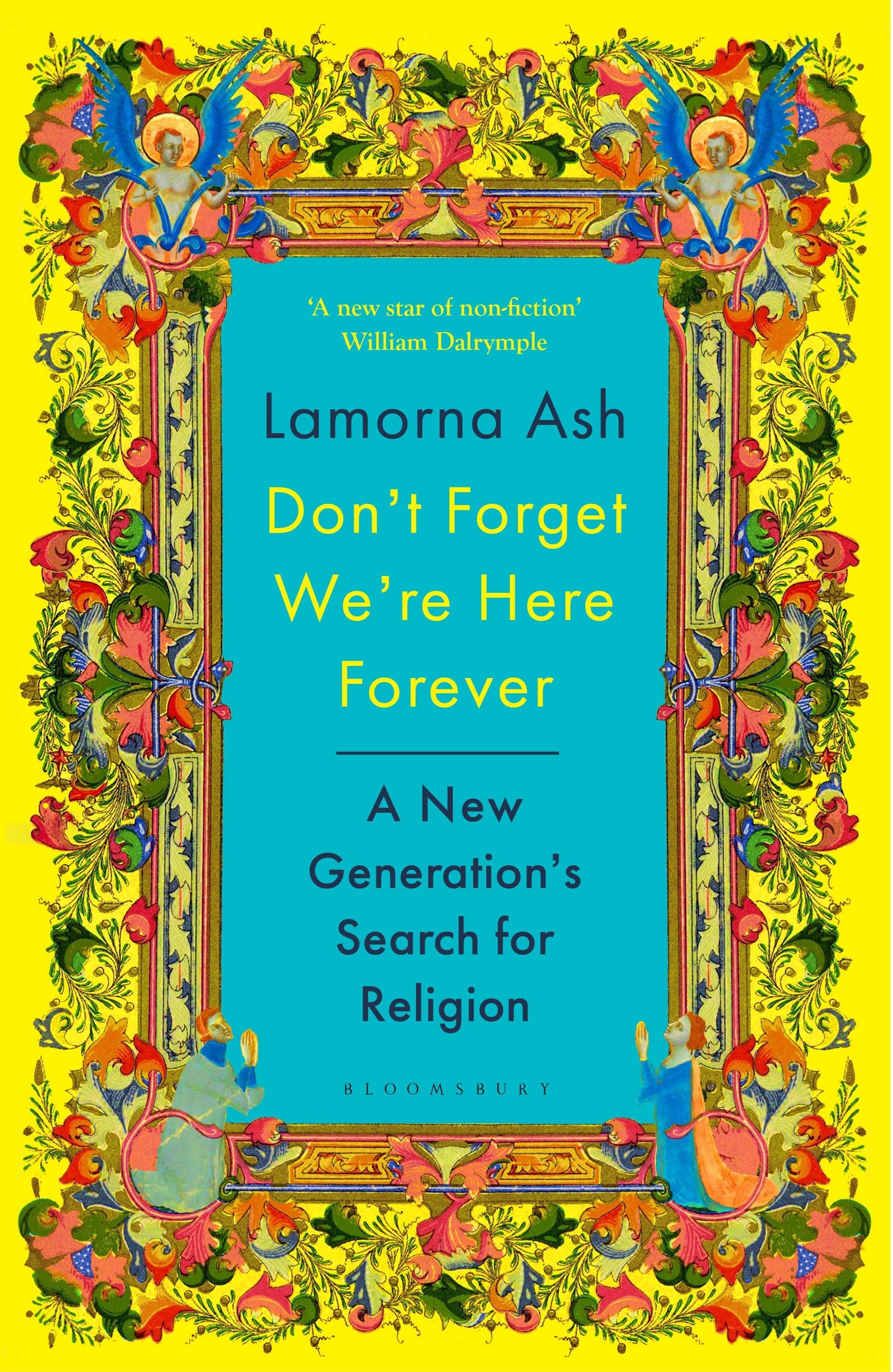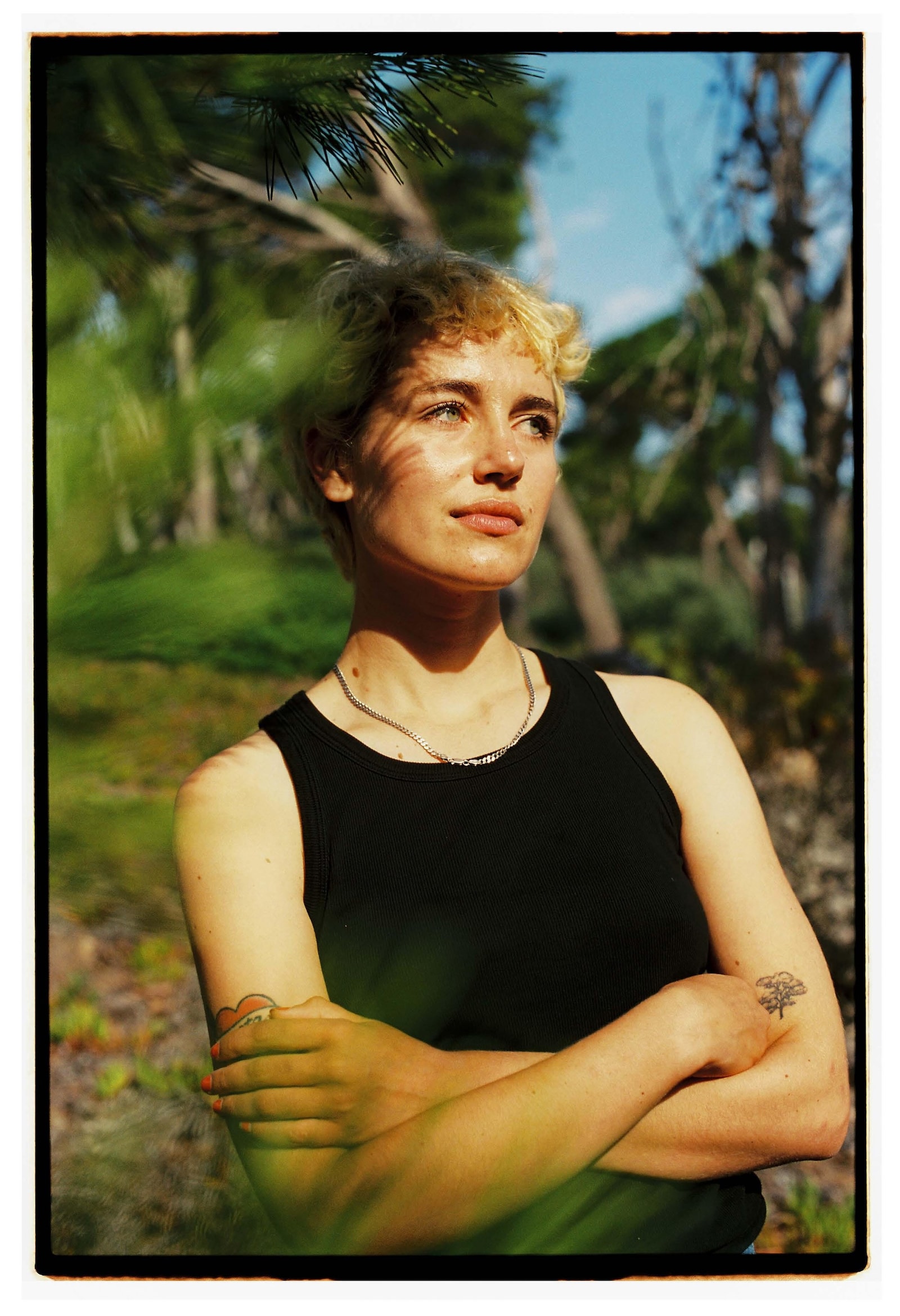In early 2021, Lamorna Ash was sitting at her desk in north London, looking for something to write about. She remembered an anecdote about a stand-up double act she knew from university, both of whom were converting to Christianity and even had their eyes on the priesthood. She wrote a longread on them in The Guardian – but the story didn’t finish there. What ensued were three more years of interviews with young converts, a new surge of whom seemed to be joining the Christian faith. This uptick, which Ash noticed first anecdotally, was later confirmed. A 2025 survey by the Bible Society and YouGov revealed that among 18 to 34-year-olds, 12 per cent of the population (5.8 million) were attending church monthly, compared to 8 per cent in 2018. The most notable increase was amongst Gen-Z, from 4 to 16 per cent.
But faith is as individual as a fingerprint. In Don’t Forget We’re Here Forever: A New Generation’s Search for Religion, Ash travels up and down Britain, starting with a Christianity Explored Bible class on the Euston Road and voyaging out to a Christian youth movement in Hertfordshire, a Catholic shrine in Walsingham and Iona, an “island off an island off an island” in Scotland that is home to an ancient Benedictine abbey which is for retreats. Whether Orthodox Christians, Quakers, Pentecostals, High Anglicans, Methodists or Mystics, Ash paints portraits of individual spirits and the communities they have found comfort in. All the while, Ash, lost and porous herself, grapples with her own faith, seeking to find a happy home for her theology that also aligns with her left-wing politics and sexual identity.
In Hampstead over coffee, Ash speaks on the importance of engaging with religious texts, the vocation of writing, and how faith reset her relationship with time.

Kitty Grady: In the opening chapter, you attend Christianity Explored Bible classes and describe how a blocked ear has left you half-deaf. Is that a metaphor for how you felt about your spirituality, and Christianity, at the outset?
Lamorna Ash: I got Covid and had this terrible ear infection, so it was really both mishearing and not wanting to hear. It was a surreal experience of going in with a nervousness about this space which tries to provoke conversions. I felt this resistance where I thought, “Whatever I’m going to do here, I’m going to do it on my own terms.”
I was also discovering how interesting Mark’s Gospel was. Before the book, I just didn’t come across Christianity or spirituality at all. If you’d asked, “Are you spiritual?” I wouldn’t have had an answer. I’d engaged with so many [religious] poets, like Gerard Manley Hopkins and writers like DH Lawrence or even Shakespeare. But I’d never taken it seriously that they had read the Bible and that’s infused in their writing. I would go to church on Christmas Day, but I’d never thought about the meaning of it. So it was deafness, but also just total ignorance.
KG: How important was literature and the text for you as a gateway into spirituality?
LA: In all the Abrahamic religions, scripture is everything. Having only read tiny bits of the Bible, I thought it was going to be a book of rules. Mark’s Gospel is the strangest gospel, and it ends not with the resurrection but with the empty tomb, so it requires you as a reader to imagine beyond that. I’ve been reading Kierkegaard’s Fear and Trembling, where he writes different versions of what happened between Isaac and Abraham. Once you realise that this text is capacious enough and robust enough for you to play with, you can start making meaning out of it. That’s what faith feels like to me, making this kind of imaginative leap that you need to engage with it. Poetry is a good container for faith because you don’t have to say anything conclusive. In Psalms, someone in a moment goes from praising God to feeling completely alone. Then George Herbert and all the metaphysical poets, where there’s doubt inside writing. To me, that felt like a route into faith.
“My twenties have been a reawakening of my desire to experience my own strangeness. Sometimes I feel embarrassed that I’m going to church tomorrow – but not enough to stop going” – Lamorna Ash
KG: The temporal element to the title of your book rings quite ironically, considering all the discussion around this current feeling of the world ending. Do you think there’s a temporal element that has created this urgency or uptick in faith for young people?
LA: There’s that truism that every generation thinks that the end of the world is coming. I always say to my parents, “No, but it really is ending,” with the unavoidable fact of climate collapse. Throughout writing about Christianity, I spent quite a lot of time going to climate protests and they are always filled with Christians – particularly Quakers, who have this sense of duty to help protect the world.
There’s also a sense of terrible tragedy and how you can hold this constant grief that we feel – whether it’s the genocide in Gaza or climate collapse. Where do I put all the misery that I receive every single second through my phone? Church can then be a space where I can quietly go and light a candle. The importance of ritual is valuable.
KG: Did your own relationship to time shift as you discovered Christianity?
LA: My sense of history has completely shifted. I barely knew, in Britain, about the Civil War period. I didn’t know what 507 BC, when Christianity turned up, would look like, and to suddenly feel what the Reformation meant across Europe. I have this much larger sense of the continuity of human doubts across time.
There was this amazing nun I met in Walsingham who became a nun because she didn’t want to miss her life. And I thought … but that is missing your life. [She explained that] by slowing down by staying in one space, she felt more engaged with what was happening in the world and was able to pray about it. Having that Sunday moment siphoned off for Church is a way to at least reflect on my week and ask, “How do I want to be?” It sounds so basic and secular and mundane but it feels important. I come back into myself afterwards and take pleasure in my life a bit more.
KG: This is a deliberately shallow question, but while writing about this youth movement, did you reflect on the idea of coolness at all?
LA: There are so many different kinds of Christianity and some are promoting themselves as cool, with people doing fit checks for the week of church. It’s probably deeply uncool that they’re trying to make church look cool in that way. There’s this thread of the trad-catholic movement in New York which is red scare-related. So people are aligning themselves with that because it feels counter-cultural. To do things because you think it appears counter-cultural is deeply uncool to me.
I was quite a weird, eccentric kid with this wild imagination. I got to secondary school and had a bit of a breakdown. Kids become desperate to be cool – which I guess means unremarkable – and not putting your head above the parapet too much. My twenties have been a reawakening of my desire to experience my own strangeness. I guess faith plays into that. It does seem uncool. Sometimes I feel embarrassed that I’m going to church tomorrow – but not enough to stop going.
“I was always approaching these [religious] spaces as a writer. But if you are engaged in those rituals, there’s a chance that they are going to work on you” – Lamorna Ash
KG: I was interested in your own wrestling between Lamorna the writer and Lamorna the spiritual person. Did you, the writer, ever threaten you as a spiritual person, and did your spirituality threaten your writing?
LA: It was always going to be a book, so I was always approaching these spaces as a writer. But if you are engaged in those rituals, there’s a chance that they are going to work on you. My sense, as I was writing, was that I had to learn to believe in other people’s beliefs to write about it with any integrity.
KG: What advice would you give to a young person who was interested in exploring their own faith, and maybe wasn’t sure where to start?
LA: I would say read a holy text or two, one with a nice commentary alongside it. My friends and I did a Bible studies class together, and we would read religious books, mostly from a secular lens. And it felt exciting because it’s such a beautiful text. People who know the Bible, in my head, are often better thinkers and writers because they engage with this text that has been in the water for thousands of years.
I would recommend a Quaker meeting because it’s a gentle entry point. It doesn’t have any of the accoutrements of Christianity, and if you’re nervous about how your sexuality would be perceived, Quakers are extraordinary and fighting for a change on sexuality and trans rights. The silence of Quaker meetings is valuable for people who want to feel what Christian spirituality is.
Don’t Forget We’re Here Forever: A New Generation’s Search for Religion by Lamorna Ash is published by Bloomsbury, and is out now.
